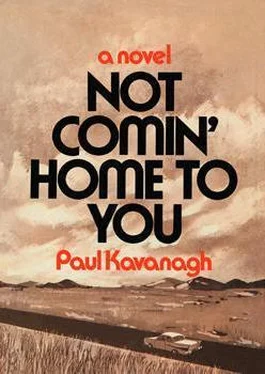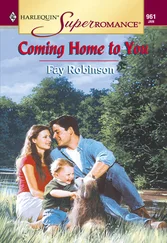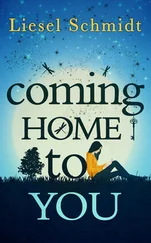Paul Kavanagh - Not Comin' Home to You
Здесь есть возможность читать онлайн «Paul Kavanagh - Not Comin' Home to You» весь текст электронной книги совершенно бесплатно (целиком полную версию без сокращений). В некоторых случаях можно слушать аудио, скачать через торрент в формате fb2 и присутствует краткое содержание. Город: New York, Год выпуска: 1974, ISBN: 1974, Издательство: G.P. Putnam's Sons, Жанр: Криминальный детектив, на английском языке. Описание произведения, (предисловие) а так же отзывы посетителей доступны на портале библиотеки ЛибКат.
- Название:Not Comin' Home to You
- Автор:
- Издательство:G.P. Putnam's Sons
- Жанр:
- Год:1974
- Город:New York
- ISBN:978-0-399-11357-4
- Рейтинг книги:3 / 5. Голосов: 1
-
Избранное:Добавить в избранное
- Отзывы:
-
Ваша оценка:
- 60
- 1
- 2
- 3
- 4
- 5
Not Comin' Home to You: краткое содержание, описание и аннотация
Предлагаем к чтению аннотацию, описание, краткое содержание или предисловие (зависит от того, что написал сам автор книги «Not Comin' Home to You»). Если вы не нашли необходимую информацию о книге — напишите в комментариях, мы постараемся отыскать её.
Not Comin' Home to You — читать онлайн бесплатно полную книгу (весь текст) целиком
Ниже представлен текст книги, разбитый по страницам. Система сохранения места последней прочитанной страницы, позволяет с удобством читать онлайн бесплатно книгу «Not Comin' Home to You», без необходимости каждый раз заново искать на чём Вы остановились. Поставьте закладку, и сможете в любой момент перейти на страницу, на которой закончили чтение.
Интервал:
Закладка:
Paul Kavanagh
Not Comin’ Home to You
For my daughters
Amy, Jill, and Alison
and for their mother
I’m gonna spend this Saturday night
Not sittin’ home alone
And I’m gonna spend tomorrow
Not callin’ you on the phone
There’s hardly time for all the things
I’m never gonna do
And I’m gonna spend the rest of my life
Not comin’ home to you
You took my love for granted
While doin’ as you please
Now all the seeds you planted
Have grown up into trees
You never saw the forest
Of reasons why we’re through
Now I’m gonna spend the rest of my life
Not comin’ home to you
You thought I’d always be on hand
Like a book upon a shelf
But you just don’t mean half as much
To me as to yourself
And so I walk that narrow line
Not stayin’ good and true
And I’m gonna spend the rest of my life
Not comin’ home to you
My heart’s no good at breakin’
My eyes weren’t made to cry
And sorrow’s one emotion
I’m never gonna try
So I’m keepin’ very busy
Not feelin’ sad or blue
And that’s how I’ll spend the rest of my life
Not comin’ home to you
From: Phil Posmantur
To: Murray Hutter
Subject: HOME treatment (enc.)
Murray—
I’m sending along the treatment for the last act of HOME. Between the novel and some research I’ve done on the original case, I think I have a good understanding of the dynamics of the principals.
Assuming it’s possible to understand them...
One
He stood straight and tall on the ramp of the Interstate, thumb out, waiting. There was a slight smile on his face, and the smile never faded when cars passed him by. He didn’t mind waiting. Sooner or later someone always stopped, and you appreciated the lift more when you waited on it.
And damn, he felt good! It was getting on noon and he rocked almost imperceptibly on the balls of his feet, rocked to an inner music and relished the Texas sun on his face and arms. Texas sun or Louisiana sun — he didn’t remember crossing the state line, but it might have come and gone while his mind was elsewhere. The trucker who picked him up outside of Meridian was a good old boy who kept the radio full of down-home music and washed it all out with a down-home conversation that was easy to ignore. He could have tuned out the Louisiana-Texas border while tuning out the trucker.
Not that it mattered much. If he was in Louisiana he was on his way to Texas, and if he was in Texas he was on his way out of it. They didn’t know him in either state and he wouldn’t be around long enough to shake a lot of hands.
His hand moved to his hair, touching it, and his fingers investigated his cheeks and chin. His hair was sand brown, high in front and swept straight back. The sideburns ended a quarter-inch above the bottoms of the earlobes, and his cheeks and chin and neck and upper lip were shaved clean. He had a light beard but still shaved twice a day. He kept his face as smooth as the softest part of any girl he’d ever touched.
It was a habit, this business of touching himself, and he reminded himself again that it was a ritual not to be performed in public. In complete privacy he liked the reassurance of touching all the parts of his body. There was no sexual element in this. Even when he touched his genitals he did so with neither erotic effect nor erotic intent. It was more a matter of continuing self-discovery. All a man had was his own self, and it was as sensible to keep up a dialogue with the body as with the mind. But with the body, as with the mind, this dialogue was a private matter.
Cars passed, and the sun warmed him, and the music sang in his blood and bones. The speed in his veins felt clean and strong and certain. That trucker had been good to him, bought him a breakfast, shook a couple dozen bennies into his palm. He’d lost the breakfast less than fifteen minutes later. He’d half-expected this. It was greasy truck-stop food, and his stomach had known better than to hang onto it. After throwing up he’d gone back inside for a glass of water to clean his mouth, and it seemed at the time that the pills from the night before were wearing off, so he got a second glass of water and washed down two of the bennies. But there was still evidently some of last night’s Dexedrine in his system and it went with the bennies in a nice moving way, and his body felt so good and his mind was so strong and he was Jimmie John Hall, free and white and twenty-two, and you couldn’t ask for better than that.
Cars in a stream, staring out of blind windshields, going from nowhere to nowhere. Except they all knew where they were going. It was all built into the drivers, stamped beneath the skin of their foreheads like the serial numbers on the engines of their cars, imprinted there to tell them who they had to be and where they had to go and what they had to do.
How small they all were. He had nothing but the clothes on his back and the few things in the airlines bag at his feet and the couple of dollars in his pocket, and he didn’t know where he was going and wasn’t even sure precisely where he was, and yet he was something and they were nothing, nothing at all.
A car slowed to a stop. He picked up his bag and moved to it, stood while the driver leaned across to crank down the window. A balding, red-faced man, his white shirt deeply sweat-stained under the arms.
“I said how far you goin’, boy?”
The car was a Ford, four or five years old, the fenders battered, one of them starting to rust out. The floor in front was littered with cigarette ends and empty coffee containers. The engine, idling now, sounded like a man with phlegm in his throat.
“Hop in, boy. Be goin’ clear across to Abilene.”
“Thanks,” he said. He took a step back. “See, I was just waiting for a friend.”
“This some kind of a joke?”
“No. Thanks very much, but I don’t want a ride just now.”
The man — a salesman, he guessed, with all those cartons in the back seat — was still trying to decide how to react. He couldn’t just drive away. He had to make sure nobody was making a fool out of him.
“God damn,” he said. “Car ain’t good enough for you, is that it? Piece of redneck trash actin’ like he’s used to Lincolns and Cadillacs. Never heard tell of a hitchhiker puttin’ on the style before.” He paused, challenging with his eyes, waiting for a response, and he was angered further by the lack of one. His eyes narrowed, turned crafty. “Why, you don’t want a ride after all! You’re just lookin’ to get picked up by some queer. You’re a goddamn queer yourself, aren’t you, boy?”
He felt his hand moving of its own accord to his back pocket. He stopped the movement and managed a smile. “You got it,” he said.
“Huh?”
“I’m a queer,” he said. “You’re absolutely right.” And, still smiling, he turned and walked off a ways in the opposite direction.
He didn’t look back. He kept walking, waiting for the car to pull away or for the driver to get out of it and come after him. The piece of pipe in his back pocket rode easy on his hip as he walked, and his mind flashed the image of the pipe leaping into his hand, his shoulder ducking as he spun, the pipe swinging over and down in a neat perfect powerful arc—
Come on. Do something.
Tires spun fiercely. He turned and watched the gravel fly as the Ford pulled back onto the road. He smiled broadly and kept his eyes on the Ford’s rear window, knowing the driver was seeing his eyes in his mirror.
No. No, your car ain’t good enough for me. It’s old and dirty, old man, all the same as you are, and ain’t neither of you fit to keep company with Jimmie John Hall.
Читать дальшеИнтервал:
Закладка:
Похожие книги на «Not Comin' Home to You»
Представляем Вашему вниманию похожие книги на «Not Comin' Home to You» списком для выбора. Мы отобрали схожую по названию и смыслу литературу в надежде предоставить читателям больше вариантов отыскать новые, интересные, ещё непрочитанные произведения.
Обсуждение, отзывы о книге «Not Comin' Home to You» и просто собственные мнения читателей. Оставьте ваши комментарии, напишите, что Вы думаете о произведении, его смысле или главных героях. Укажите что конкретно понравилось, а что нет, и почему Вы так считаете.












